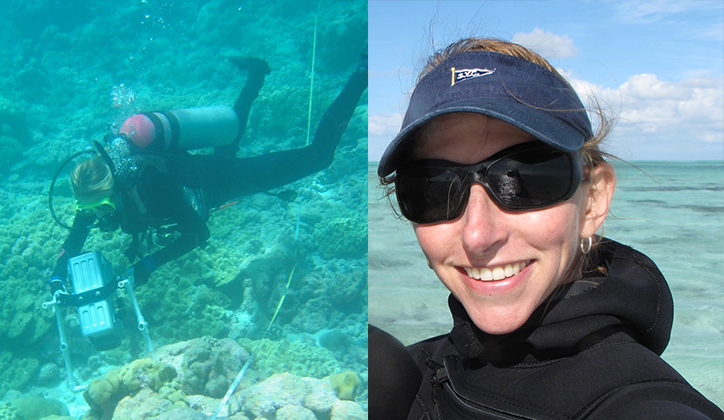We’re profiling nominees in the lead up to the 2014 Macquarie University Research Excellence Awards this Thursday 2 October.
This week meet Dr Elizabeth Madin from the Department of Biological Sciences, who is a nominee for an Early Career Researcher of the Year – Science and Engineering Award.
How long have you been a researcher at Macquarie?
I’ve been at Macquarie for just over two years. Prior to that I was a US National Science Foundation International Postdoc based at the University of Technology, Sydney.
I was drawn to research because…
I knew I wanted to be actively engaged in conservation issues and realised at some point that the best way I could do that was to gain scientific knowledge and expertise needed to help solve some of the pressing conservation problems facing the world’s oceans.
What would be an ‘elevator pitch’ of your research area?
Through my research I try to understand how human activities affect ocean ecosystems and how we can minimise our negative impacts. In particular, much of what I do looks at how humans indirectly affect predation risk in the oceans and how these so-called ‘risk effects’ cascade through food webs. An example of this is that when we go fishing, we often remove bigger fish from the ocean, in turn reducing the risk of being eaten for smaller fish and allowing them to take more risks in their own search for food – subsequently changing the way the small fishes’ food grows. This is called a behavioural cascade. These effects can potentially lead to wholesale changes in the structure of ocean ecosystems. I hope my research can in the future help us to avoid many of the unintended consequences of our actions on the world’s oceans.
In layman’s terms, what is the wider impact of your research?
Many of the things that we as humans do for food, income or recreation negatively impact ocean ecosystems. We’re constantly learning about new, often surprising ways in which we are affecting oceans, in part because it’s much harder for us to see what’s going on in the ocean versus on land. This to me is where researchers like me come in. With my research I aim to reveal these negative impacts and find ways to minimise them while recognising that humans depend on marine resources and likely always will. Once we understand the kinds of impacts we’re having, we’re often able to find ways to be more sustainable, and this ultimately is what I hope to achieve with my research.
In ten years I see my research…
I see my research shaping the way we think about how we interact with the ocean. I believe that if we can find sustainable, win-win solutions for both people and marine ecosystems, we can turn around the downward trajectory facing too many ocean ecosystems today.

